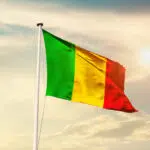Mali Independence Day is held on September 22 annually. The eighth-largest country in Africa celebrates its hard-won status as a self-ruled nation. On the anniversary of Mali’s independence from France, the entire nation gets a day off. This means a public holiday for governmental institutions, schools, universities, and most businesses. The celebrations on Mali Independence Day, which is also called ‘Republic Day,’ are filled with festive activities, speeches, and even parades, the grandest of which occur in the city of Bamako.
History of Mali Independence Day
The West African region that we now call Mali was previously one of three massive empires that controlled sub-Saharan trade. These three empires — the Ghana Empire, the Mali Empire, and the Songhai Empire, were not only incredibly powerful but were immensely wealthy too. Mali was, in fact, one of the richest countries in Africa and the world, and its emperor at the time, Mansa Musa, is often referred to as the wealthiest person in history. The country was also a famous place of learning and culture and was a center of Islam.As the Mali empire weakened over time, they were subsumed by the expanding Songhai Empire. As Europe established different trade routes, the once rare and prosperous sub-Saharan trade route began to lose prominence. These once-wealthy empires experienced a significant decline in influence and power. By the 19th century, even as colonialism had spread around the world, Mali’s distance from the sea helped the region escape dominion. However, the Mali empire had experienced a series of internal Islamic religious wars, leaving the region with multiple theocratic states. And now, France started taking an interest in the landlocked country, gradually taking control by 1892, and finally making it a French colonial region by 1905.It was only in 1946 that a territorial assembly called the Sudanese Union–African Democratic Party (Union Soudanaise–Rassemblement Démocratique Africain or U.S.–R.D.A.) was formed. This was the region’s first step to becoming autonomous and independent of French authority. They merged with Senegal in January 1959, forming the Mali Federation. France then signed an agreement to transfer power back to the native people, which went into effect in June 1960.Another setback was coming for the Mali people, however. Policy differences surfaced between Senegal and Mali. This, combined with dashed hopes that other Francophone regions would join their union, led to a dissolution of the Mali Federation in August of that same year. A month later, Mali declared its independence anyway and became the Republic of Mali. Celebrations to commemorate this struggle for independence have been held ever since.
Mali Independence Day timeline
Carvings, rock paintings, and ancient farming artifacts point to the fact that Mali has been inhabited since ancient times.
The Great Mosque of Djenne in Mali becomes the world's largest man-made clay structure.
A brief union with Senegal results in the region being named 'Mali' after the famous Mali empire that once lived in those parts; the union doesn’t survive, but the name certainly did.
The former French colony officially declares its independence, becoming the Republic of Mali.
Mali Independence Day FAQs
How is Independence Day celebrated in Mali?
Mali Independence Day celebrations have included festive parades, concerts, dances, street performances, donkey races, political speeches, and even private barbecues.
What was Mali’s early name?
Upon becoming a French colony, Mali was primarily called ‘French Sudan,’ although the region was occasionally given new names like ‘the Sudanese Republic’ as its geographical boundaries changed.
When did the Mali Empire start and end?
The Mali Empire was founded by King Sundiata Keita in 1235 and it lasted until 1645.
Mali Independence Day Activities
-
Read about the Mali Empire
Check out various sources, books, and documentaries on the great Mali Empire of old. Learn about cool new facts, what made this place so special, and how they became special centers of learning.
-
Participate in their celebrations
Maybe you buy a ticket to Mali for the celebrations, or maybe, you can simply check to see if events are happening online too. There might even be television coverage of special parades and other activities on this day, which you won't want to miss.
-
Explore Mali culture
This is a vast land with very diverse customs and traditions, and even languages. Explore the music, the food, and the traditions of different communities in this region. You can start by looking for sources online, then at bookstores, and go from there.
5 Interesting Facts About Mali
-
It's all about the gold
Mali has many reserves of natural resources, and one of the most prominent is gold, making this country the third-largest producer of gold in Africa.
-
Mali is in the tropical zone
Mali is very close to the equator, making it one of the hottest countries on Earth.
-
The Prime Meridian Marker is in Mali
The geographical marker that separates both hemispheres of the Earth is in Gao, Mali.
-
Mostly young people
As of 2017, almost 67% of Mali's people were below 25 years of age, making Mali a country with one of the youngest populations in the world.
-
They're high on diversity
They have 12 official national languages apart from the main languages of Bambara and French.
Why We Love Mali Independence Day
-
It's a day to remember the past
Mali Independence Day celebrates the sacrifices and contributions of all those who fought for this country's freedom. These warriors' memories are specially commemorated and celebrated during this event.
-
Mali helped shape West Africa
The Mali Empire was such an economic and educational powerhouse that it forever changed how West Africa lived and interacted. Their influence can be seen in the language, customs, faith, and culture of people all over West Africa.
-
It’s a fascinating country
Apart from its hugely diverse population, Mali is a place of vast natural resources. The culture is vivid, and it boasts some incredible landmarks and monuments, which paint a picture of a rich ancient culture.
Mali Independence Day dates
| Year | Date | Day |
|---|---|---|
| 2023 | September 22 | Friday |
| 2024 | September 22 | Sunday |
| 2025 | September 22 | Monday |
| 2026 | September 22 | Tuesday |
| 2027 | September 22 | Wednesday |


































